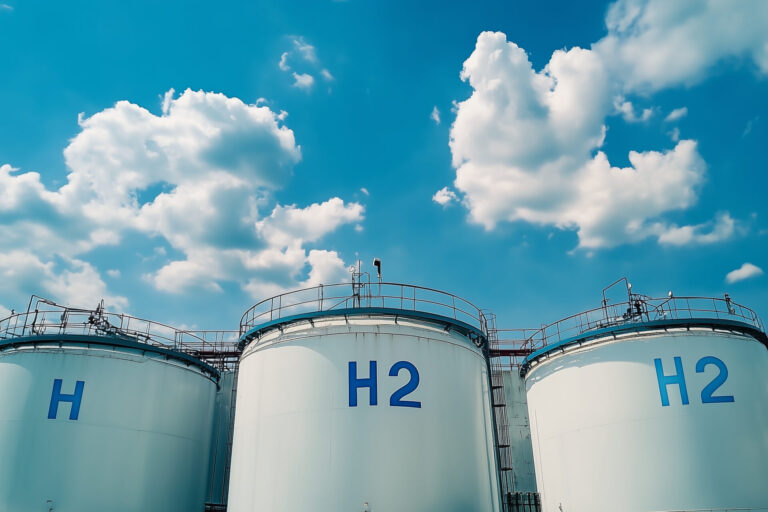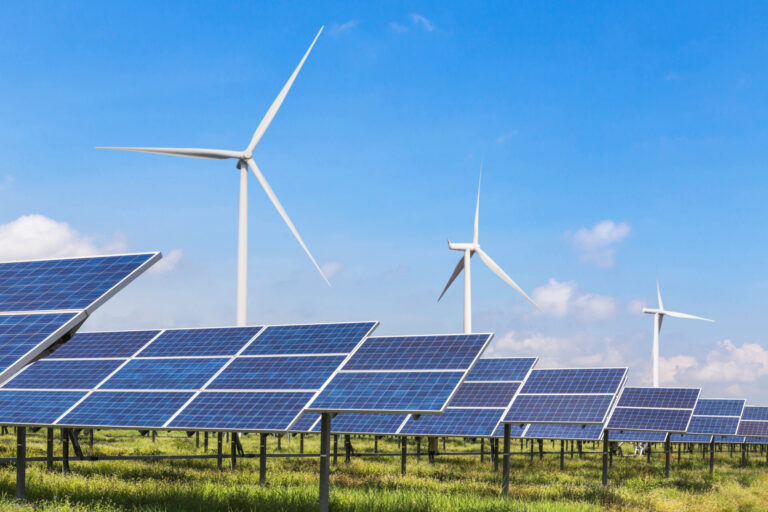In June 2025, Chancellor Rachel Reeves announced a £14.2 billion public investment in the Sizewell C nuclear power station. This...
Read More- Industry Updates
How Hydrogen Storage Can Revolutionise the UK’s Energy Grid
-
 James Turnbull
James Turnbull
- 3 minute read
Discover More
REGO Market in 2025: A Turning Point for UK Renewable Certification
The REGO Reckoning In the UK’s journey towards net zero, Renewable Energy Guarantees of Origin (REGOs) have long served as...
Read MoreUK Oil and Gas: Rising Import Dependence and Market Pressures
Two significant developments in the UK’s energy sector illustrate the evolving landscape: a predicted sharp rise in oil and gas...
Read More
A new report highlights the transformative potential of hydrogen storage, suggesting it could save the UK up to £1 billion annually by 2050.

But First, What Is Hydrogen Storage?
Hydrogen storage is the process of storing hydrogen in various forms for later use as an energy source. It serves as a critical component in the energy transition, allowing surplus energy from renewable sources like wind and solar to be stored for times when energy demand is higher or renewable generation is lower.
Hydrogen can be stored in compressed gas form, as a liquid at cryogenic temperatures, or within chemical compounds. This flexibility could make hydrogen storage a key enabler for grid stability, long-term energy storage, and decarbonising industries and transport.
The Preliminary Plan
By addressing the intermittency of renewable energy, hydrogen storage offers a cost-effective solution to stabilise the energy grid and ensure a reliable supply. The report underscores the importance of repurposing facilities like the Rough gas storage site off the coast of North Yorkshire to act as large-scale hydrogen reserves, paving the way for a more resilient energy system.
£2 billion has already committed to this initiative, but its success hinges on government and regulatory support to unlock the required investment. Hydrogen can be described as a ‘very big battery‘ that can provide electricity when renewable sources, like wind and solar, are unavailable. Current talks speculate that with an additional £2 billion investment from the UK government, the Rough facility could be transformed into the world’s largest hydrogen storage site, marking a significant step towards building a future-proof energy system and assisting the UK in reaching its 2050 net-zero goal.
The Benefits Of Hydrogen Storage
Hydrogen storage offers several key advantages that could make it a vital part of the UK’s energy strategy. It allows surplus renewable energy to be stored efficiently, ensuring electricity generated during periods of low demand can be used when it’s needed most. This helps stabilise the grid and reduces reliance on fossil fuels.
Hydrogen’s ability to store energy over long periods makes it particularly useful for managing seasonal energy demands, unlike batteries which are more suited to short-term storage. It also supports decarbonisation efforts, cutting greenhouse gas emissions and enabling clean energy use across sectors such as transport and power generation. While there are challenges to overcome, the flexibility and scalability of hydrogen storage position it as a cornerstone of a sustainable and reliable energy future.
The Drawbacks Of Hydrogen Storage
Despite its potential, hydrogen storage comes with several challenges that need addressing. The infrastructure costs, including systems for compression, liquefaction, and storage, are significant, making it a substantial financial commitment. Hydrogen’s low energy density means large storage systems or high-pressure tanks are required, adding further expense and complexity. Safety is another concern, with hydrogen being highly flammable and prone to leaks due to its small molecular size.
Moreover, converting electricity to hydrogen and back again results in energy losses, making it less efficient than some alternatives. The UK’s existing energy infrastructure would also need considerable upgrades to support hydrogen storage at scale. Overcoming these hurdles will require new and innovative technologies and substantial investment in order to unlock hydrogen’s full potential as a clean energy solution.
Hydrogen storage has the potential to transform the UK’s energy system, offering a reliable way to store renewable energy, stabilise the grid, and reduce reliance on fossil fuels. While challenges such as infrastructure costs and efficiency must be addressed, plans for the Rough gas storage site show what can be achieved with the right investment and government support. By embracing hydrogen storage, the UK could take a significant step towards a sustainable and resilient energy future.
Facebook
LinkedIn




